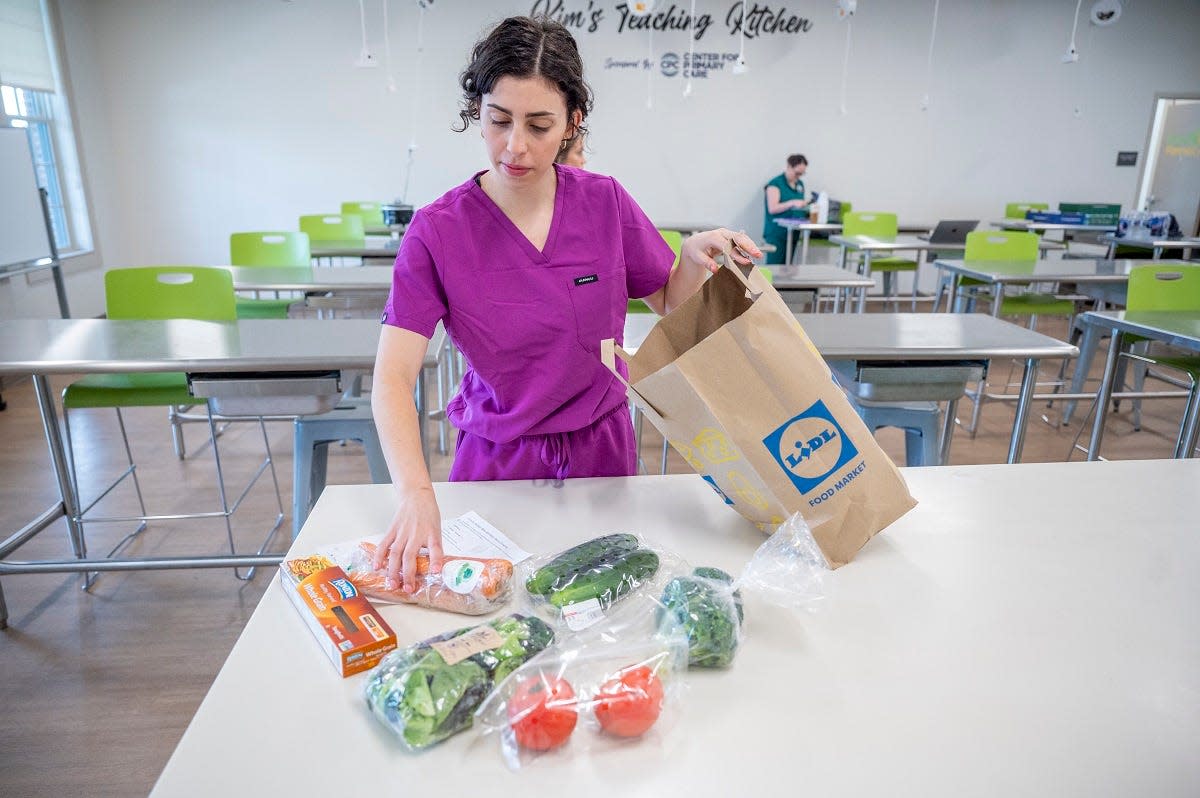Food as medicine: New Food Farmacy opens in Augusta to help pregnant, postpartum women

According to the Centers for Disease Control and Prevention, the state of Georgia has one of the worst maternal and fetal mortality rates in the country. While there is no quick fix to the problem, there are some steps being taken in the Augusta area to help pregnant and postpartum women with a new Food Farmacy program.
Dr. Chad Ray, professor in the Medical College of Georgia‘s Department of Obstetrics and Gynecology, and Dr. Marlo Vernon, associate professor for the Georgia Prevention Institute at MCG, have teamed up with Augusta Locally Grown at the Hub for Community Innovation to provide mothers and expectant mothers with not only fresh produce, but also other healthy activities, such as meeting with nutritionists, free in-person cooking classes and more.
Ray has been studying maternal mortality for a number of years and serves on the maternal mortality review committee in Georgia. He has worked closely with the CDC and knows how big of a problem it is to keep expectant mothers and new mothers in good health.
He also said the project with Augusta Locally Grown has been in the works for a while now, but it was time for action.

“We are treating this like it’s a pilot program right up front,” said Ray. “We know it’s sustainable this year and the goal would be to not only do this for this specific population that we’re targeting, but over time, we can hopefully do this year round and for anybody with food insecurity.”
The program will initially last six months. Women who have any chronic or underlying health condition, including food insecurity, are invited to Augusta Locally Grown. Once they enroll in the program, they receive an educational workbook and complete weekly and monthly tasks. Upon completion of those tasks, they are “prescribed” local fruits and vegetables free of charge to help with their and their family’s eating habits.
Vernon said they have also partnered with Golden Harvest Food Bank and the Department of Public Health to hold weekly screenings for SNAP and WIC benefits. If they qualify, mothers can receive those benefits as well.
At the Maternal Health Food is Medicine program, it’s important to connect eligible neighbors to these programs and help get them enrolled.
“What we’re coming to realize is that not only do people maybe struggle with food insecurity, but they don’t know how to eat healthy and they don’t know how to access healthy food,” said Vernon.
It’s more than food they are receiving. Mothers can also talk to dieticians for meal prep ideas and nurses for basic health checks. The Hub also offers free childcare so they don’t have to worry about that during their visit.

“We’re really trying to hit on all those barriers that a mom might have to accessing this type of education. The play on the ‘farmacy’ is because we’re working with local farmers to provide these fruits and vegetables through this program,” Vernon said.
It’s not just about a healthy lifestyle. She added they are trying to improve each mother’s self confidence in not only being able to select healthy items when out shopping, but also prepare meals for their families that is good for everyone.
Jennifer Plueger, a community project coordinator for Georgia Prevention Institute, said the workbooks use the American Heart Association’s healthy for life curriculum.
“We want this to be something that was adapted for moms that she can apply,” said Plueger. “Healthy eating habits have that direct impact on health, not only for moms but families. Lots of times they are decision makers when it comes to what families eat. We really want this to be something that mom starts for herself and then passed down to the kids as well.”
Marine to art major: ‘Art never really stopped for me, even while at war’
The pilot program is funded by the Georgia Department of Public Health and a cardio obstetrics grant Ray and Vernon have received.
Ray indicated this is an inexpensive program compared to what is spent on other aspects of health care and said there are other philanthropic opportunities, even through the American Heart Association. He’s confident this is a sustainable program if it’s done right.
“We have to develop a hub and spoke model that makes sense," he said. "Incorporate virtual care, incorporate social determinants as a priority and look at the disease conditions that have the highest risk. I think we will move the needle and I don’t think I’m just being an optimist."
This article originally appeared on Augusta Chronicle: Food Farmacy a new program to help Augusta area mothers find healthy food
